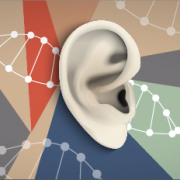DNA clues discovered for asymptomatic and long Covid conditions
The HLA-B and FOXP4 DNA regions may be the link between Covid-19 symptom severity and our genome, according to two papers
The Covid-19 global emergency is over, the World Health Organisation announced in May. And it can feel that way, with no more social distancing and people going on holiday without needing to prove they’ve been vaccinated. Behind the scenes, though, Covid-19 research continues to generate new findings.
Two recent studies have shed light on some of the genetic mechanisms seen in separate groups of patients. One study reports on those who had Covid-19 but experienced no symptoms at all (asymptomatic Covid), but the first study we’ll look at focuses on patients whose symptoms continue years after initial infection (long Covid).
A long Covid-causing gene?
The first study, made public via bioRxiv as a preprint, has come out of the Covid-19 Host Genetics Initiative. This is a global data-sharing collaboration that seeks to understand the genomic factors that influence Covid-19’s severity and outcome in a person, as well as their susceptibility to the virus.
Using pooled data from 24 studies from 16 countries, researchers did a genome-wide association study to look for variants associated with long Covid. This highlighted a variant in part of the genome near to the FOXP4 gene, which previous studies noted as influencing the severity of a Covid-19 infection. “This variant has a much stronger impact on long Covid than its impact on severity,” noted Karolinska Institute geneticist and lead author Dr Hugo Zeberg.
The FOXP4 gene is mainly expressed in the lungs, as well as in some immune cells. This matches with some aspects of long Covid, including the well-known shortness of breath and persistent cough. The gene doesn’t seem to explain other long Covid symptoms, however. This means there are more areas in the genome (and non-genomic factors) that make someone more susceptible to long Covid.
“When causes, maybe multifactorial, [are] clearly understood,” said former Public Health England immunologist Dr Stéphanie Longet, “it will help to treat patients who will be more susceptible to develop long Covid and potentially prevent long Covid.”
- Discover more: Covid-19: susceptibility and the genome
Uncovering the genomics of asymptomatic Covid
During the pandemic, about 1 in 5 people (or roughly 20%) had no symptoms from the virus at all. Now, the strongest genomic evidence for asymptomatic Covid-19 infections has been published in Nature.
Researchers at the University of California San Francisco studied samples from almost 1,500 people who weren’t vaccinated against Covid-19 before getting a positive test result. The researchers looked at HLA genes, which are known to be associated with immune responses.
The HLA-B*15:01 variant had the strongest association with asymptomatic Covid-19 infections, though not enough to fully predict whether a person will experience symptoms. This variant was present in 20% of study participants who didn’t experience Covid-19 symptoms, but only in 9% of people who experienced symptoms. People who carried two copies of the HLA-B*15:01 variant were eight times more likely to be asymptomatic than average.
Using blood samples, the researchers were able to show that people with HLA-B*15:01 produce T-cells – immune cells that kill viruses – in response to other seasonal coronaviruses. As such, although the virus can infect them, their immune system is already primed to respond. This means they get less sick or don’t show any symptoms at all.
- Also in our blog: Confirmed: Covid-19 vaccine response depends on our genes
From discovery to understanding to treatment
These two studies highlight how our genome can impact the outcome of an infection. For doctors and researchers, knowing how and why some people were affected more than others means new pathways to infection can be discovered. Researchers can then develop drugs that exploit these pathways, slowing down or stopping future coronavirus infections.
Ultimately, this could help healthcare systems by giving them tools to better cope with future coronavirus outbreaks, global or otherwise.









